Introduction
As a leading no-code application development platform under Google, AppSheet has helped millions of enterprises quickly build mobile and web applications covering scenarios such as project management, data collection, and automated processes since its establishment in 2012. This has been achieved through its code-free visual interface, deep integration with the Google ecosystem (Sheets/Drive/AI), and cloud collaboration and cross-platform compatibility capabilities.
Despite AppSheet’s excellent performance in the no-code development field, we have found some discussions on Reddit where users want to replace AppSheet:
🔴 High Costs (Especially for Small Teams)
“I have been using AppSheet to make various workflow apps for my business. However AppSheet is asking for a plan upgrade to continue allowing user login. Although I love AppSheet, $50/mo is too steep for the 4-5 users accessing the app. Does anyone else know of any similar options that sync well with google sheets? Can I somehow launch my own apps subscription free?”
🔴 Vendor Lock-in
“I’ll soon be looking to switch some business operations away from Google, and this may also involve moving away from Appsheet. I was wondering if anyone has found any good alternatives, with user permissions, possibly an option for self hosting.”
🔴 Performance Issues
“I have a fairly large inventory system built into appsheet, but Appsheet is slow, especially with the addition of virtual columns for billing. Is there another platform I can transition to?”
🔴 Data Privacy & Self-Hosting Needs
“I am looking for a selfhosted database type app, something similar to Ragic and Google Appsheet. Preferably with a mobile app, user management and pwrmissions, and multi user / server signin for simple account switching. Any suggestions?”
These feedbacks indicate that developers are seeking more cost-effective, flexible, customizable, and self-hosted alternatives. Next, we will focus on recommending 5 open-source alternatives to AppSheet from these perspectives, including NocoBase, Budibase, Directus, Appsmith, and ToolJet.
💡 Read More: AppSheet Alternative: Build a Many-to-Many Task System No-Code
NocoBase (Data Model-Driven Low-Code/No-Code Platform)
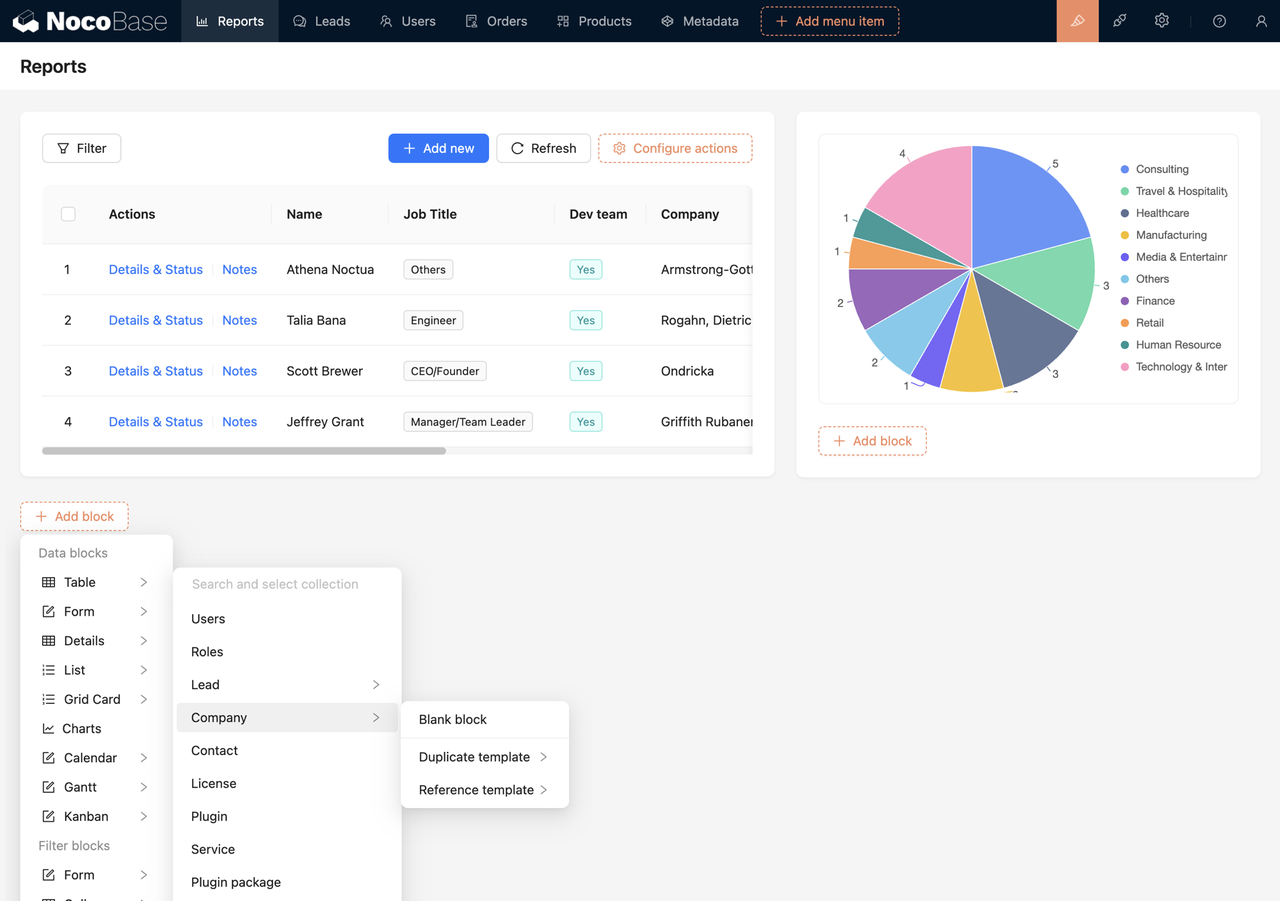
- GitHub:https://github.com/nocobase/nocobase
- GitHub Stars: 14k
- Website: https://www.nocobase.com/
- Documentation: https://docs.nocobase.com/
✅ Why Choose NocoBase?
- Data Model-Driven: NocoBase is powered by data models at its core. It supports multi-source data integration (MySQL, PostgreSQL, etc.), features a decoupled frontend-backend architecture with built-in metadata management, handles tens of millions of data records, and efficiently builds complex data models. This makes it suitable for sophisticated business systems like CRM, ERP, and inventory management.
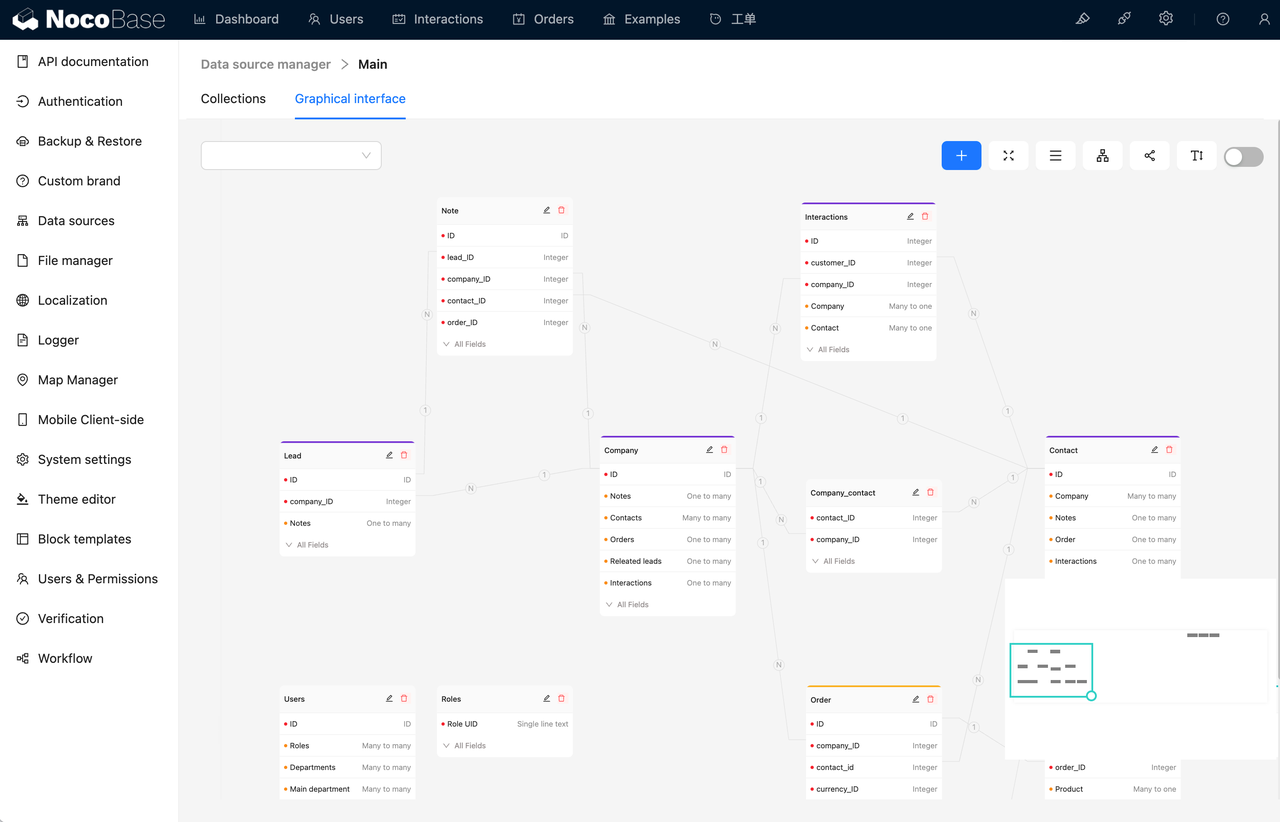
- Plugin Architecture: NocoBase adopts a microkernel design, emphasizing the philosophy that “everything is a plugin.” Users can select, install, or develop plugins as needed to extend system functionality. This plugin-based architecture enables NocoBase to swiftly adapt to diverse business requirements, empowering users to customize system features according to real-world scenarios and improve operational efficiency.
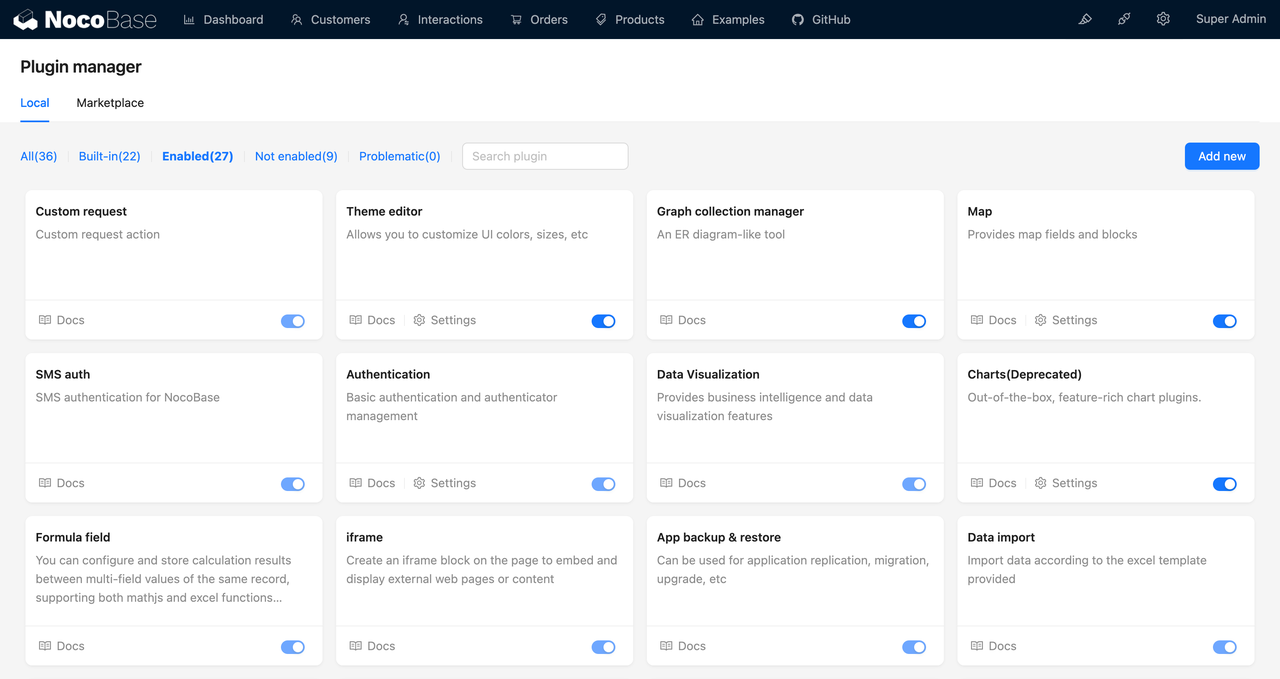
- Role-Based Permission Management: NocoBase allows the creation of custom roles and user groups, assigning specific permission policies. It supports granular permission settings at the data table, field, and record levels. Developers can configure distinct data access permissions for different user roles, achieving refined data management.
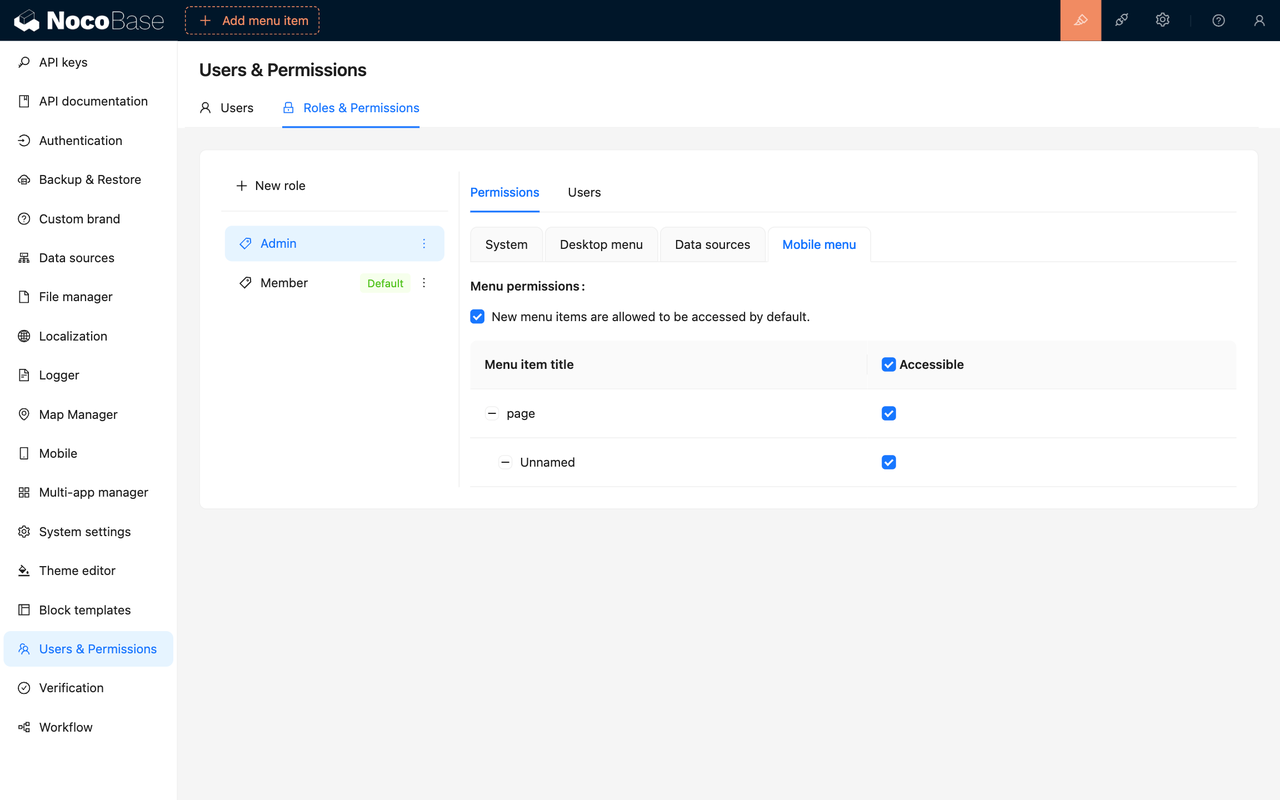
- Supports Docker/local deployment: NocoBase enables Docker and local deployment, ensuring full data ownership and eliminating the risk of vendor lock-in.
Budibase (Low-Code App Builder)
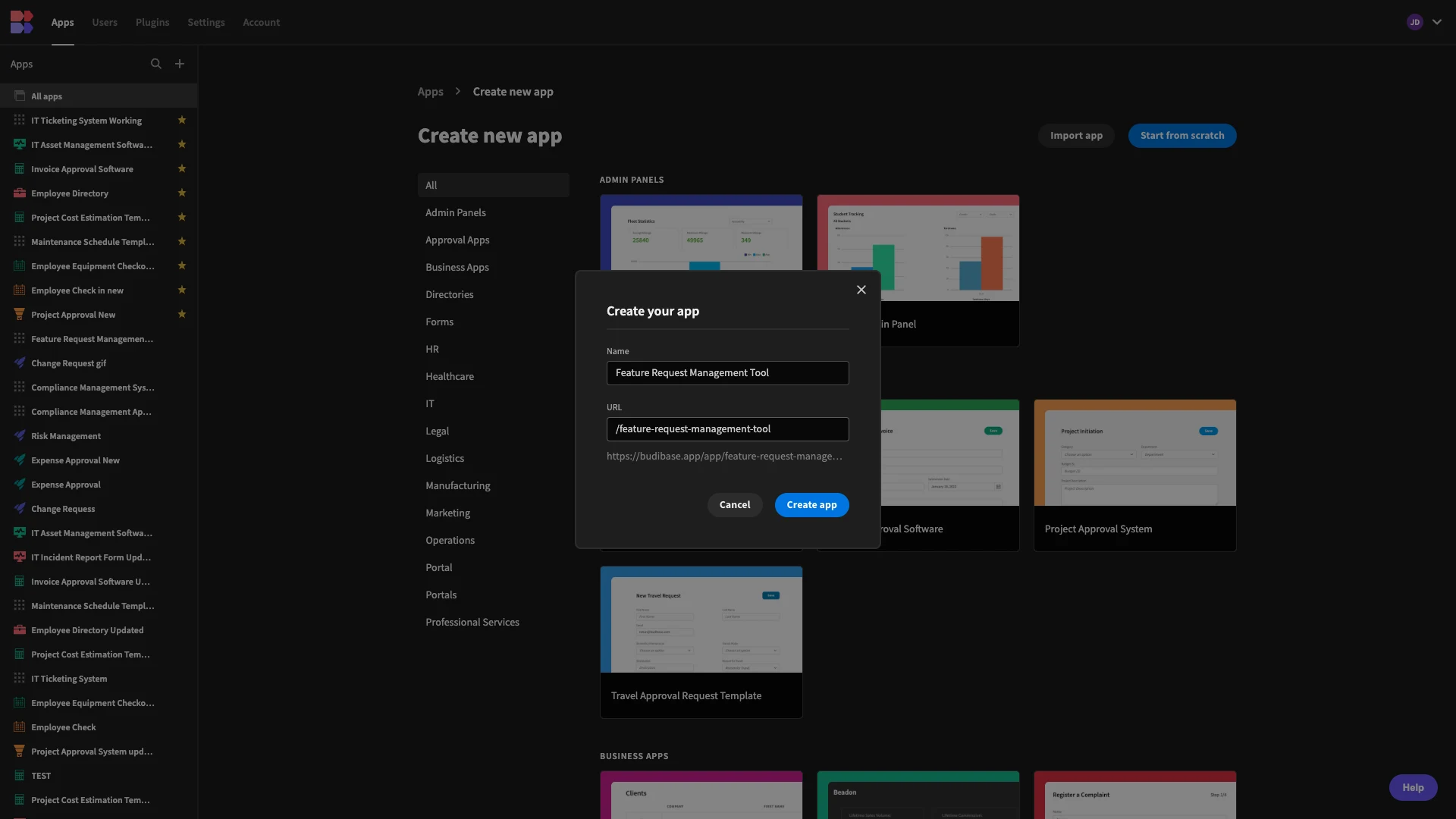
- GitHub:https://github.com/budibase/budibase
- GitHub Stars: 23.8k
- Website: https://budibase.com/
- Documentation: https://docs.budibase.com/
✅ Why Choose Budibase?
- Drag-and-drop UI designer that enables one-click database connection and creation of dynamic forms, dashboards, and other applications.
- Rich in components and compatible with multiple data sources such as PostgreSQL, MySQL, MongoDB, and REST API, allowing enterprises to directly connect to internal databases without the need to migrate to Google Sheets.
- Budibase offers Docker, Kubernetes, and local deployment options, ensuring data security and avoiding vendor lock-in.
Directus (API-First Low-Code Platform)
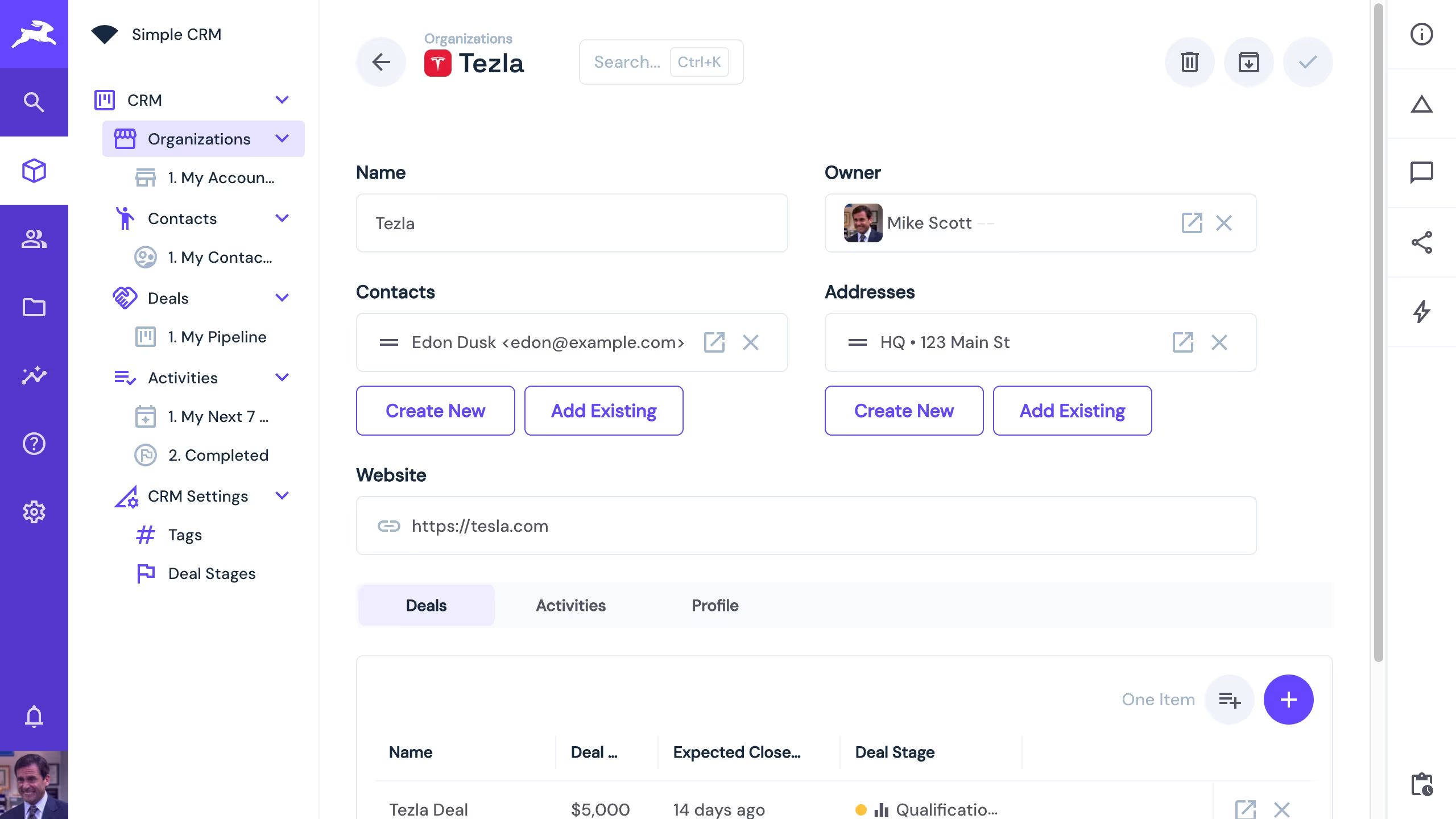
- GitHub:https://github.com/directus/directus
- GitHub Stars: 29.7k
- Website: https://directus.io
- Documentation: https://docs.directus.io/
✅ Why Choose Directus?
- An API-first database management tool that enables developers to directly access data via REST or GraphQL, making it suitable for business scenarios with API requirements, such as e-commerce, inventory management, and data visualization.
- User accounts and a fine-grained permission system that can be implemented at any time, directly connecting to any database and providing an intuitive GUI for managing user accounts and permissions.
- Supports custom extensions, allowing for the development of custom features while maintaining the stability and scalability of the core system.
Appsmith (Enterprise-Grade Low-Code Platform)
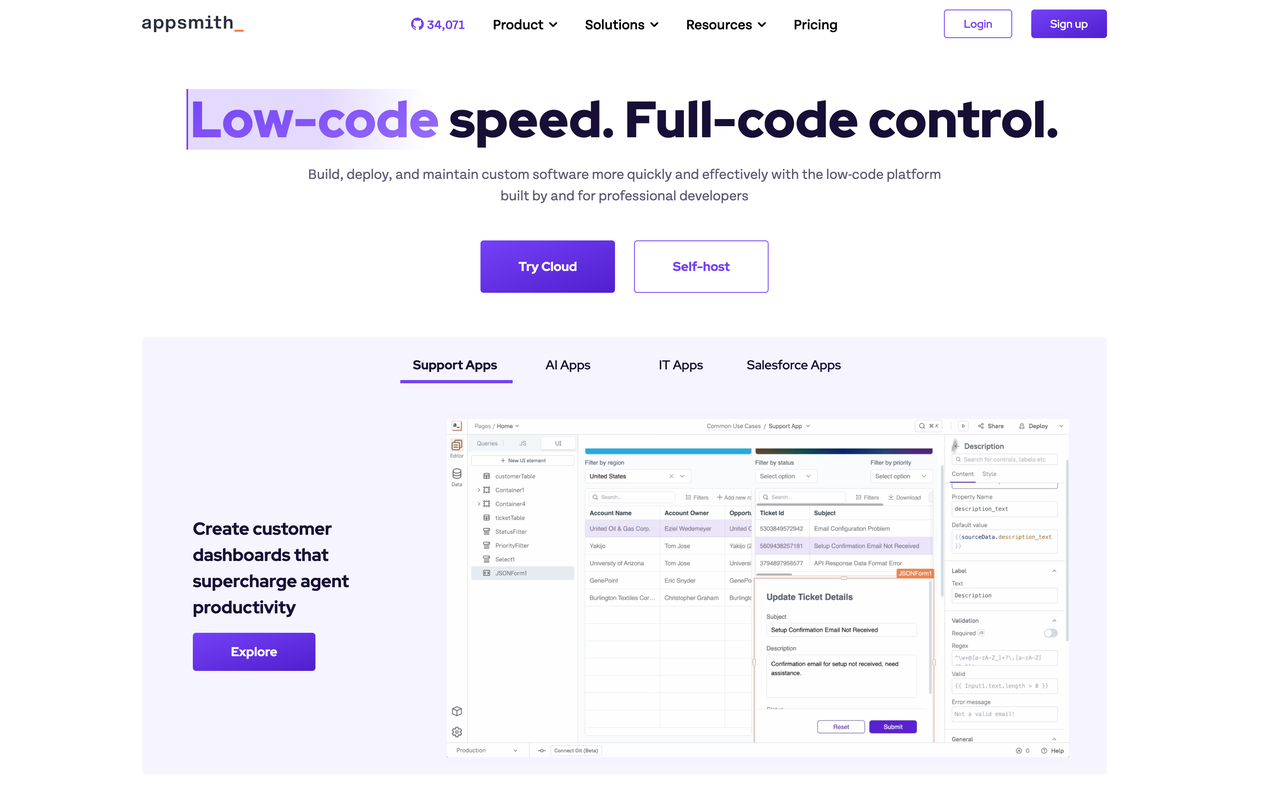
- GitHub:https://github.com/appsmithorg/appsmith
- GitHub Stars: 36.5k
- Website: https://www.appsmith.com/
- Documentation: https://docs.appsmith.com/
✅ Why Choose Appsmith?
- Supports drag-and-drop UI design while allowing developers to write JavaScript logic, enabling the construction of more complex enterprise applications such as ERP, customer service management systems, inventory management tools, etc.
- Powerful API integration, capable of integrating with REST API, GraphQL, and third-party SaaS tools (such as Stripe, Twilio, Slack).
- Supports self-hosting, allowing enterprises to run it on their own servers to ensure data privacy and security.
ToolJet (Lightweight low-code platform)
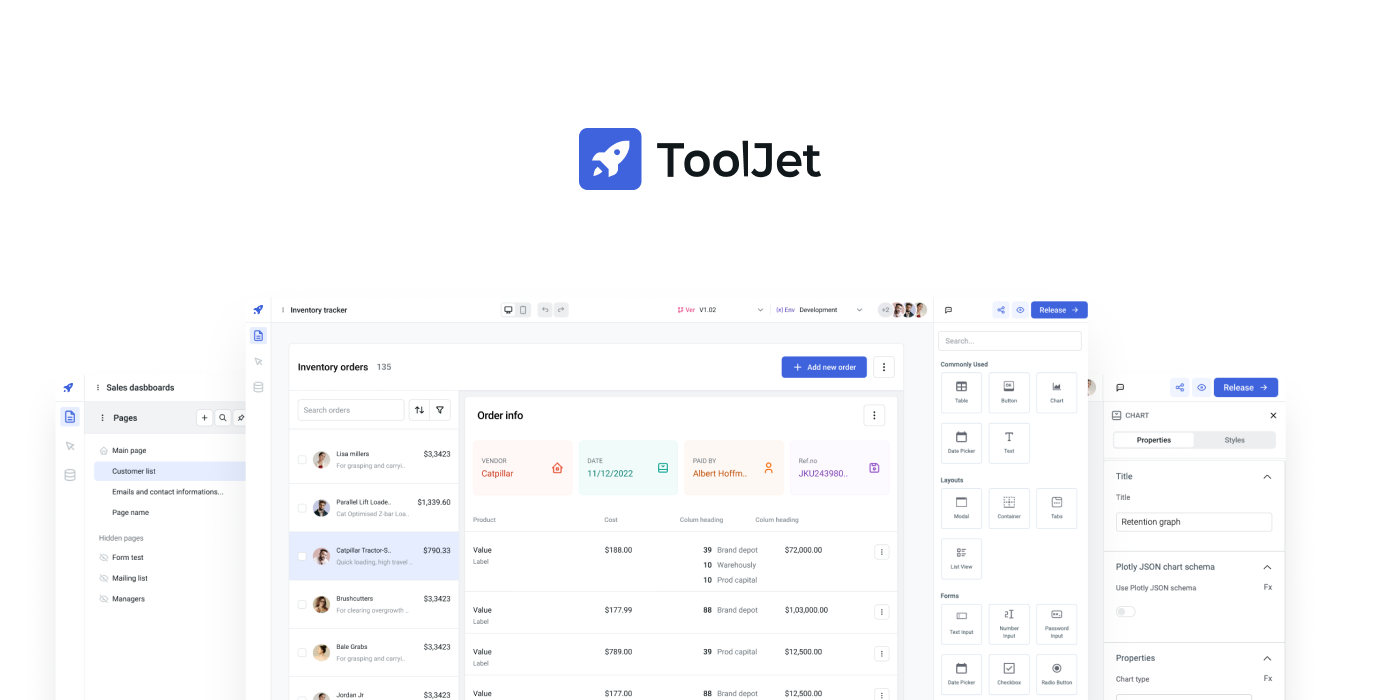
- GitHub:https://github.com/ToolJet/ToolJet
- GitHub Stars: 35.2k
- Website: https://tooljet.io
- Documentation: https://docs.tooljet.ai/docs/
✅ Why Choose ToolJet?
- Lightweight and easy to deploy, suitable for teams that do not want to deploy complex systems, and can be quickly started within 5 minutes.
- Provides a visual UI design, uses leading LLMs vector databases to build AI-driven agents, and connects to all existing databases, APIs, and services.
- Supports Docker / Kubernetes deployment, allowing enterprises to run on their own servers or private clouds, avoiding the risk of data leakage.
Summary
Choosing the right open-source no-code platform depends on your business needs. Here are the features and application scenarios of the 5 best open-source alternatives to AppSheet:
- NocoBase: Data model-driven, with powerful permission management. Suitable for enterprises that require complex data modeling and fine-grained permission control, especially for applications like CRM and ERP that involve multi-role and multi-level management.
- Budibase: High UI design freedom, supports self-hosting, and can quickly build personalized internal enterprise applications. Particularly suitable for teams that focus on interface design and business process automation.
- Directus: API-first, flexible database connection. Suitable for SaaS platforms, e-commerce backends, and data management systems.
- Appsmith: Drag-and-drop UI components combined with JavaScript logic. Suitable for dashboards and customer management systems that require custom interfaces and complex interactions.
- ToolJet: Provides a simple and easy-to-use low-code development experience, supports mainstream databases and APIs, and is suitable for building data management, approval processes, and simple business tools.
🚀 I hope this article can help you find the right AppSheet alternative.
Related reading:
- Why Open-Source Alternatives Are Replacing OutSystems in 2025?
- 4 Powerful Open Source Alternatives to Salesforce (With Cost Comparison You’ll Love)
- Top 8 Open Source IT Asset Management Software for 2025
- Top 7 Open Source Rapid Development Platform
- Top 8 Open-Source Projects (Rated) to Build Your Own Task Management System
- The Ultimate Guide to Data Transformation Tools